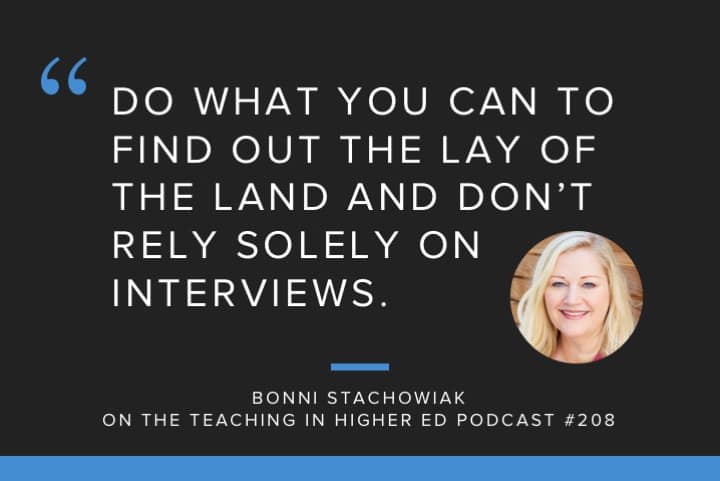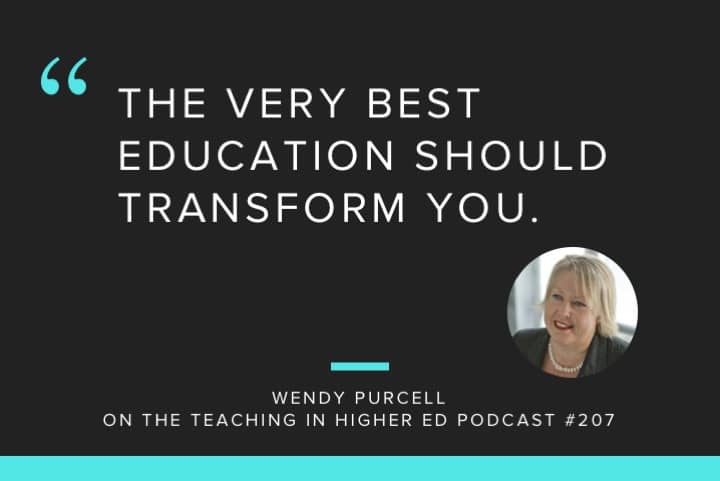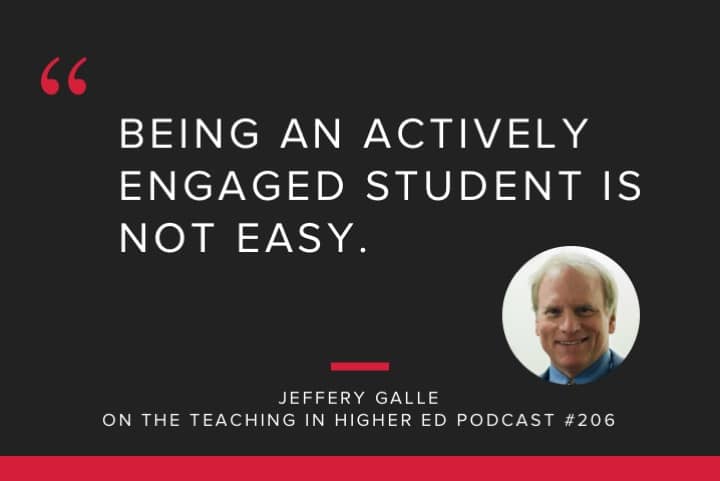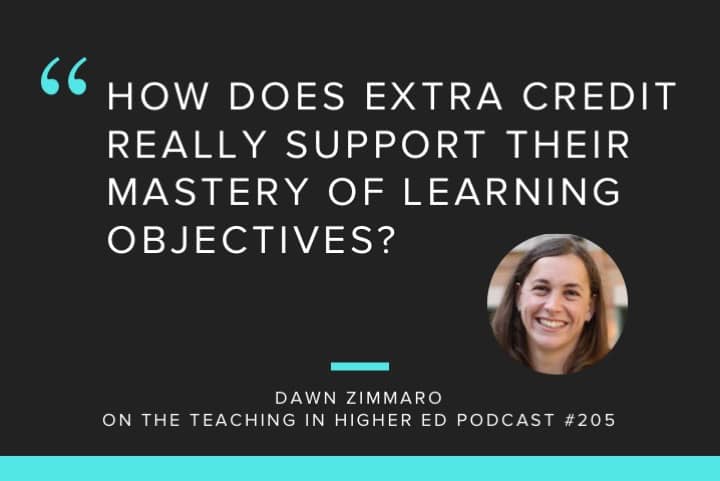Bonni Stachowiak shares the 208 backstory on episode 208 of the Teaching in Higher Ed podcast.
Quotes from the episode

Do what you can to find out the lay of the land and don’t rely solely on interviews.
—Bonni Stachowiak

Wendy Purcell shares about rethinking higher education on episode 207 of the Teaching in Higher Ed podcast.
I think you’re seeing that universities now are needing to be much more connected to the society we serve.
—Wendy Purcell
You really will be learning throughout your life.
—Wendy Purcell
The very best education should transform you.
—Wendy Purcell
You are supporting transformation of people, and through people, transformation of society at large.
—Wendy Purcell
Education is the kindling of a flame, not the filling of a vessel.
—Socrates
To an unprecedented extent, universities must partner with government, business, and civil society to take on the grand challenges of sustainable development that lie ahead.
—Jeff Sachs
If you want to build a ship, don’t herd people together to collect wood and don’t assign them tasks and work, but rather teach them to long for the endless immensity of the sea.
—Antoine de Saint-Exupery
 Jeffery Galle discusses inquiry-based learning on episode 206 of the Teaching in Higher Ed podcast.
Jeffery Galle discusses inquiry-based learning on episode 206 of the Teaching in Higher Ed podcast.
Students get excited when they’re confronted with problems which they have confidence to explore.
—Jeffery Galle
Being an actively engaged student is not easy.
—Jeffery Galle
Start small and work outward from there.
—Jeffery Galle

We see the need both for that just-in-time answer but also for faculty to do more thinking systematically about why they do what they do.
—Jay Parkes
Stop and say, “Why does this bother me?” and usually the answer to that is … something a little deeper than that particular student.
—Jay Parkes
How does extra credit really support their mastery of learning objectives?
—Dawn Zimmaro
If we’re really focused on the academic welfare of the student then our assessment activity should primarily be focused on promoting learning.
—Dawn Zimmaro
Sarah Rose Cavanagh shares about her book, The Spark of Learning, and more on episode 204 of the Teaching in Higher Ed podcast.
Students are not going to learn if they’re not engaged, if they’re not curious.
—Sarah Rose Cavanagh
Students will remain engaged … if we initially generate excitement.
—Sarah Rose Cavanagh
We need to be authentically ourselves.
—Sarah Rose Cavanagh
We need to be attentive to the fact that there lots of different ways to portray that passion to be the spark.
—Sarah Rose Cavanagh